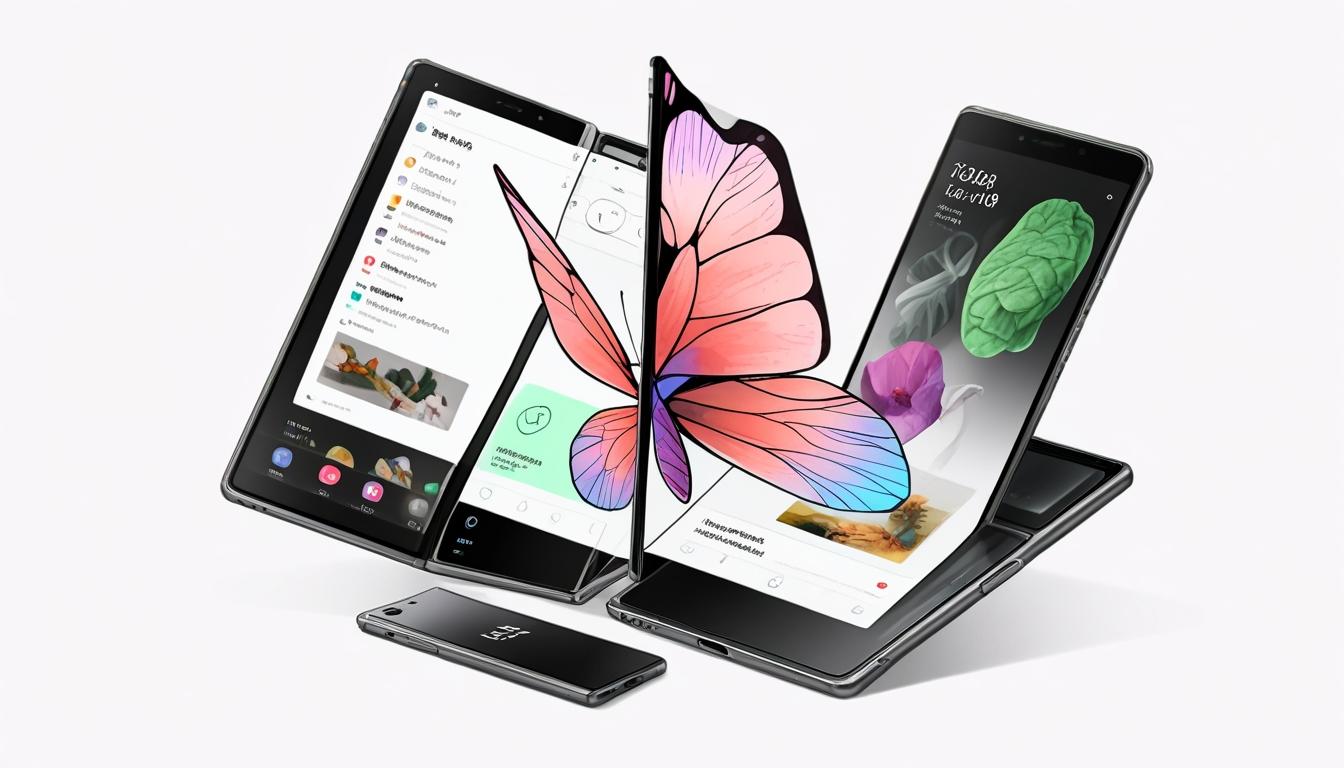As anticipation builds for the Samsung Galaxy Z Fold 7, expected to debut in July, speculation surrounds the potential enhancements that could redefine this foldable experience. Following the unveiling of the Galaxy S25 Edge on May 12, the Galaxy Unpacked event promises to showcase innovations, but as with many advancements in smartphone technology, the upgrades may be more incremental than revolutionary.
While past iterations of the Galaxy Fold series have been met with both interest and critique, the forthcoming Z Fold 7 is projected to feature notable improvements, including a 200MP main camera, an upgraded under-display camera, and a larger 8.2-inch internal screen. These enhancements aim to position the Fold 7 as a serious competitor, potentially rivaling flagship models like the Galaxy S25 Ultra. The introduction of One UI 8, likely built on Android 16, could streamline user experience further, yet it seems that Samsung is prioritising a qualitative evolution rather than a dramatic overhaul.
The incremental nature of these updates might initially evoke a sense of apprehension among enthusiasts. Many current users, who have enjoyed the Galaxy Fold 4, may not feel an overwhelming urge to upgrade unless a standout feature emerges.
A significant catalyst for excitement could indeed be the integration of advanced artificial intelligence. While some may sceptically approach generative AI, there is undeniable potential for AI to enhance smartphone functionality in meaningful ways. The Galaxy AI suite has already begun to make strides, as highlighted by features introduced in previous models. For instance, the Galaxy Z Fold 6 unveiled capabilities like Portrait Studio, which transforms photos into various artistic styles, and real-time translation functions that cater to a global audience.
However, as commentators observe, the practical application of AI in smartphones often leaves much to be desired. Despite improvements noted in reviews, such as those by Senior Editor Philip Berne on the Samsung Galaxy S25 Ultra, Galaxy AI still feels somewhat disjointed in its implementation. Users desire seamless integration that elevates the multitasking abilities of foldable phones, aiding in a more intuitive interaction across multiple apps and windows.
One potential solution lies in enhancing the multitasking interface for the Galaxy Z Fold 7. Users find the current experience awkward, grappling with how to effectively position and size their apps on the expansive screen. A well-executed AI could learn individual user preferences and facilitate a more tailored multitasking environment, optimizing the use of the device’s unique screen space.
Moreover, the promise of AI-driven enhancements extends to video playback as well—enabling intelligent upscaling and resizing tailored for the foldable format would enrich the media consumption experience. Rather than focusing solely on photo editing or organisational features, users would benefit from technology that adapts to the variable dimensions of foldable displays. Engagement with these innovative technologies could result in users feeling more empowered by their devices, rather than merely satisfied.
Moreover, in light of Samsung's production strategy, it appears that the company is treading cautiously, having reportedly reduced manufacturing targets for the Z Fold 7 and Flip 7 due to sluggish sales in the foldable segment. With a projected output of only five million units combined, Samsung’s focus may be shifting more towards innovating existing models rather than pushing for widespread releases.
The launch of the Z Fold 7 could serve as a bellwether for Samsung’s future direction in the competitive smartphone landscape. If Samsung can leverage AI not just as a gimmick but as a substantial enhancement, it could turn the tide in favour of foldables—transforming the mundane into the extraordinary.
Ultimately, the crux of user expectation remains: will the advancements range from merely satisfactory to genuinely ground-breaking? As enthusiasts await the July reveal, the hope lingers that AI will play a pivotal role in elevating the foldable experience, compelling both current users of the Fold series and new customers alike.
Reference Map
- Paragraph 1: [1]
- Paragraph 2: [2]
- Paragraph 3: [1]
- Paragraph 4: [3]
- Paragraph 5: [4]
- Paragraph 6: [5]
- Paragraph 7: [6], [7]
- Paragraph 8: [2], [5]
- Paragraph 9: [1]
- Paragraph 10: [1]
Source: Noah Wire Services
